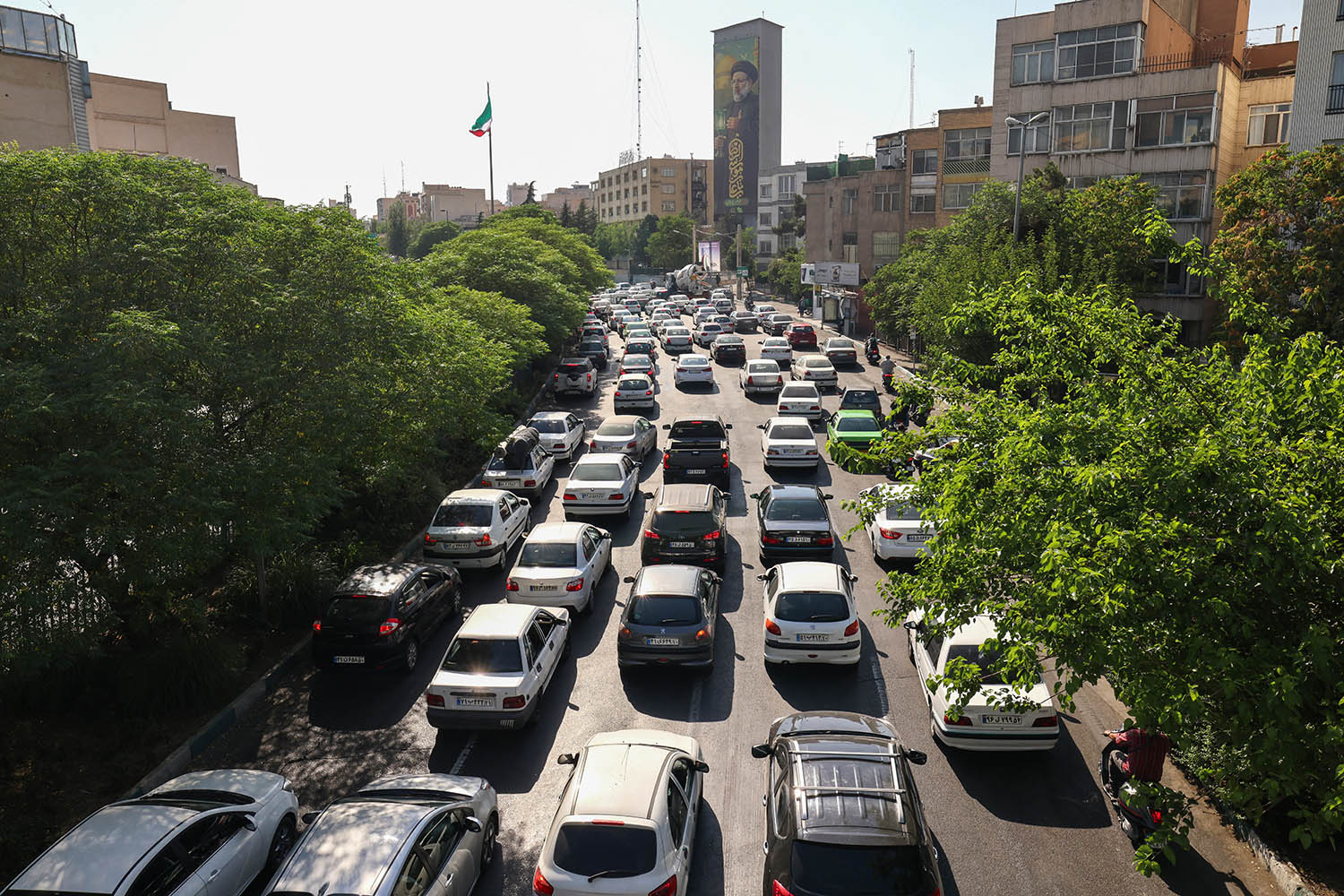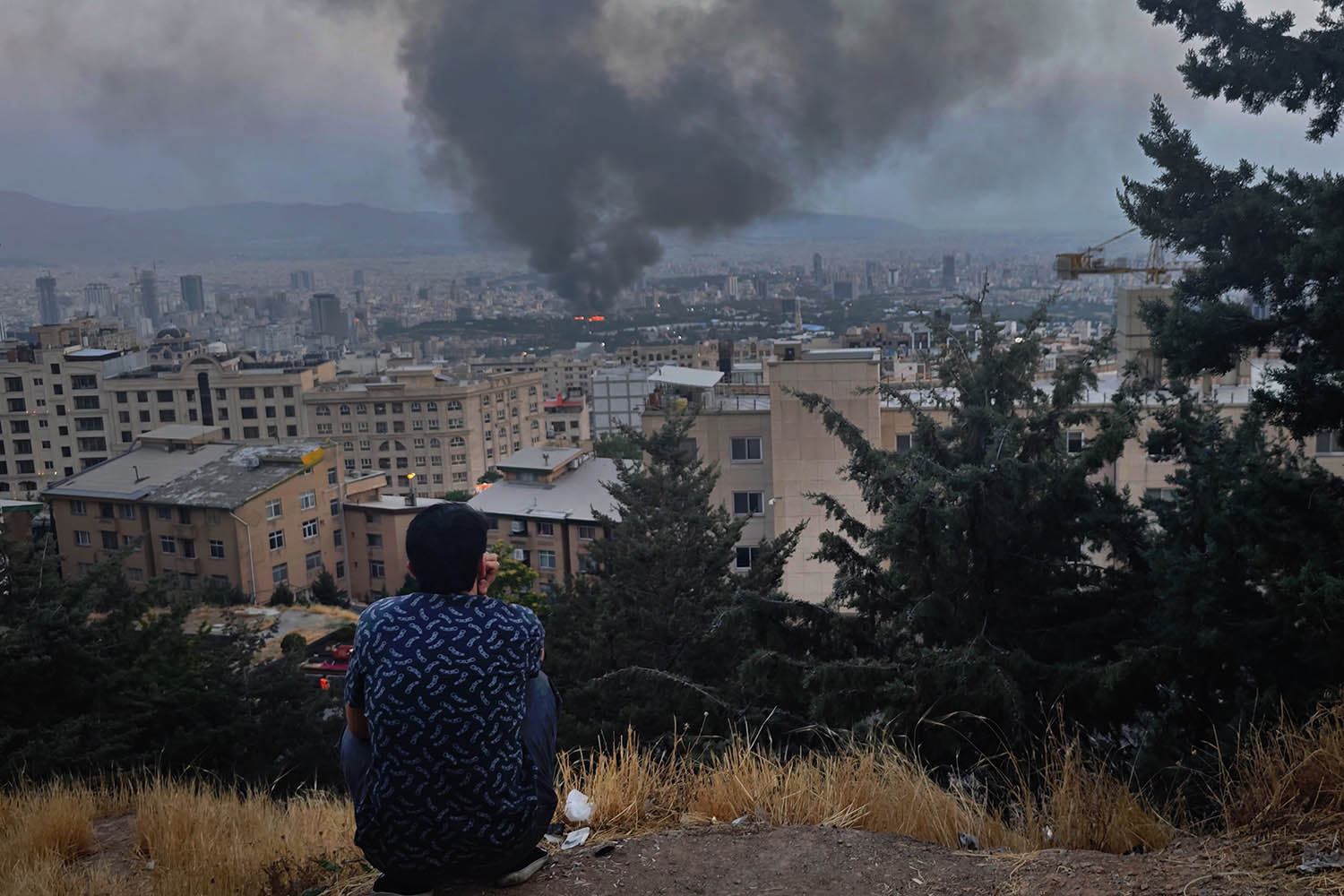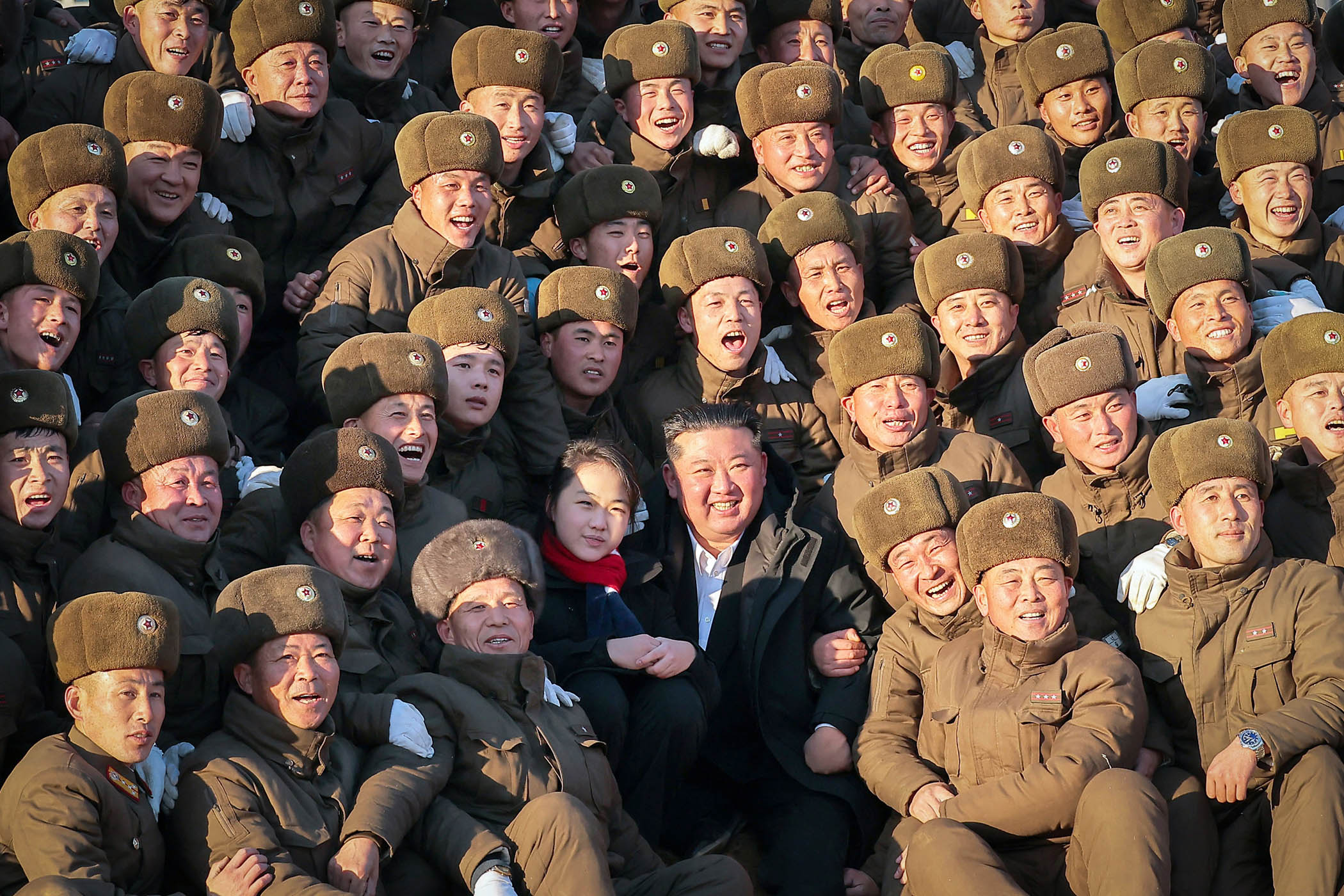Tehran has a smell now – a thick, metallic haze that clings to your clothes, your breath, your memory. “I’ve just come to understand the smell of war,” writes Nazanin, a journalist who fled the city earlier this week. “Air defences have a smell. So do the missiles … It’s been imprinted in my olfactory memory. Now, forever, I know the smell of war.”
The scent lingers longer than the explosions. It weaves itself into the emptiness of a once-bustling metropolis – 10 million people now adrift. Abandoned pets. Taped windows. Shuttered shops. Petrol queues stretching for miles. Tehran is holding its breath.
So is the rest of the world. “I may do it, I may not,” said US President Donald Trump when asked on Wednesday about the potential of US strikes on Iran. The threat of intensification is looming. Already, more than 500 people are estimated to have been killed.
On Monday, I fought with time – and with my 80-year-old parents. My deeply spiritual father dismissed any urgency to leave their flat in District 3, saying he was not afraid of death. He had seen bombs before, during the Iran-Iraq war. Fear is not new. When Israel later announced strikes on their district, I called again. My dad, fresh from a shower, laughed: “Let me put on a shirt to greet Mr Netanyahu.” How typically Iranian to meet an imminent threat with humour.
They finally agreed to move to my grandmother’s flat 5km away – just as Israel struck the state broadcaster, based in District 3, live on air. The camera caught a hijab-clad presenter denouncing Israel before explosions rattled the studio. Smoke filled the frame. She fled mid-sentence. Iranians watched live as state TV – for decades the regime’s mouthpiece, a channel of forced confessions and erased dissent – was silenced.
What began as precise targeting of Revolutionary Guard (IRGC) commanders has now escalated into something far larger. Israel’s Operation Rising Lion, reportedly using Mossad-sourced AI and smuggled drones, struck more than 100 Iranian military, nuclear and broadcast sites – including enrichment facilities at Natanz and Fordow, IRGC headquarters, F-14s on the runway at Tehran’s Mehrabad airport and critical infrastructure across the country.
Iran has responded with hundreds of ballistic, drone and hypersonic missiles, striking Israeli cities including Tel Aviv, Haifa, Bat Yam, and Rehovot, as well as a hospital in the south. Civilians on both sides have been killed.
In the early hours of 18 June, the Israeli military issued evacuation warnings for residents in Tehran’s District 18. Within hours, traffic snaked north towards Mazandaran and Gilan as thousands fled.

People flee Tehran through an artery in the city's west on 15 June.
By mid-morning around 330,000 people had received evacuation orders. The city was in chaos, with people scrambling for fuel, food, internet access and safe passage. With connectivity down, communication collapsed into rumour and fear.
What began with cautious optimism – as Israel appeared to surgically eliminate key Revolutionary Guard figures – has now metastasised into all-out war. Iranians are facing destruction, dislocation and the creeping dread of a drawn-out conflict.
Newsletters
Choose the newsletters you want to receive
View more
For information about how The Observer protects your data, read our Privacy Policy
But there’s something Israel might be missing. Many Iranians – even those who have spent years resisting the regime – aren’t cheering for foreign bombs. There’s a line between hating your rulers and welcoming an attack on your homeland.
“They think just because we hate the government, we’ll clap when the missiles come,” said Mehdi, a 32-year-old from south Tehran. “But this is our fight. We don’t want Israel or America handing us freedom on a drone. We want to take it back ourselves.”
That deep national pride – bruised but not broken – runs through the streets. For all the fury aimed at the Islamic Republic, many still say: “This change has to come from within.”
As the overnight bombardments continued through Wednesday – involving more than 50 Israeli aircraft striking more than 20 military, nuclear and communications sites – state TV finally aired a pre-recorded video in which the supreme leader, Ali Khamenei, threatened the US and warned it not to intervene. His silence until that point remains a source of public scorn.
With speculation swirling about a possible assassination attempt on Khamenei, many Iranians on social media are comparing him to Saddam Hussein – the former Iraqi president who was toppled after the US invasion then tried and convicted by an Iraqi court for crimes against humanity. Iranians want him held accountable.
“An assassination would be too easy,” one post read. “He should stand trial like Saddam. He should face the families, the grieving mothers. He should be judged – properly, publicly.”
"Khamenei should face the grieving mothers. He should be judged – properly, publicly"
"Khamenei should face the grieving mothers. He should be judged – properly, publicly"
Social media post
For a generation raised on silence, censorship and impunity, justice isn’t about revenge. It’s about truth. It’s about reckoning.
In Tehran’s bazaars, cafes and encrypted social media channels, dissent bubbles to the surface. Some are posting defiant pro-Israel slogans and dancing amid the sirens. Others reject any idea of salvation from the skies. As one young man posted: “We want freedom, not occupation.”
While bombs fall, the regime continues its ruthless crackdown. Women still receive automated text messages about their hijab violations. Dissidents are arrested. The Islamic Republic now faces two enemies: Israel – and the rage it has planted in the hearts of its own people.
As the war entered its sixth day, Israel claimed to have established air superiority over Tehran. But Iran may escalate further. With US involvement looming, fears of a wider regional conflagration grow.
For my family – and half the city – fear, displacement and dread reign. Whether the war ends with a ceasefire or spirals into deeper chaos, one thing is certain: it lives now in memory. In silence. In the streets. And in the smell.
Photograph by Atta Kenare/AFP via Getty


